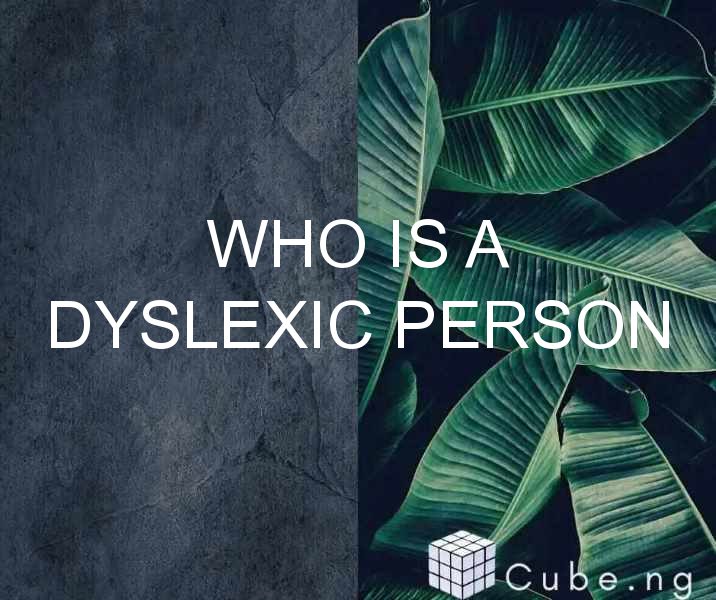Table of Contents
Who is a Dyslexic Person?
Dyslexia is a reading disorder that affects one's ability to read, write, and spell. It is a common condition that affects people of all ages, races, and genders. Dyslexia is often misunderstood by people who do not have the condition. In this article, we will explore who is a dyslexic person, the causes of dyslexia, the symptoms of dyslexia, and how to manage dyslexia.
What Causes Dyslexia?
The exact cause of dyslexia is not known. However, scientists believe that it is a combination of genetic and environmental factors. Dyslexia can be inherited from one or both parents who carry the genes that cause dyslexia. Studies have shown that specific genes are associated with dyslexia, including genes related to reading, language, and memory processing. Environmental factors such as premature birth, low birth weight, and exposure to toxins during pregnancy can also increase the risk of dyslexia.
Symptoms of Dyslexia
Dyslexia can manifest itself in various ways. The most common symptoms of dyslexia include difficulty in reading, writing, and spelling. Dyslexic individuals may also have difficulty with phonological processing, which is the ability to identify and manipulate sounds in spoken language. Other symptoms of dyslexia include difficulty with organization, time management, and memory retention.
Who is at Risk of Developing Dyslexia?
Anyone can develop dyslexia, regardless of their academic or economic background. However, there are certain risk factors that can increase the likelihood of developing dyslexia. These risk factors include a family history of dyslexia, premature birth, low birth weight, exposure to toxins during pregnancy, and less exposure to reading in early childhood.
How is Dyslexia Diagnosed?
Dyslexia can be diagnosed by a qualified professional, such as a psychologist, neurologist, or educational specialist. The diagnosis is made through a series of tests that assess the individual's ability to read, write, and spell. These tests may include an evaluation of phonological processing, memory, and other cognitive abilities.
How is Dyslexia Managed?
Dyslexia cannot be cured, but it can be managed through a combination of educational interventions and accommodations. Educational interventions include specialized reading programs, tutoring, and other educational resources that are tailored to the individual's needs. Accommodations such as extra time on exams, assistive technology, and preferential seating can also help dyslexic individuals succeed academically and professionally.
Conclusion
In conclusion, dyslexia is a common reading disorder that affects people of all ages, races, and genders. It is caused by a combination of genetic and environmental factors, and it can manifest itself in various ways. Dyslexia can be diagnosed by a qualified professional, and it can be managed through a combination of educational interventions and accommodations. With the right support, dyslexic individuals can achieve academic and professional success.




